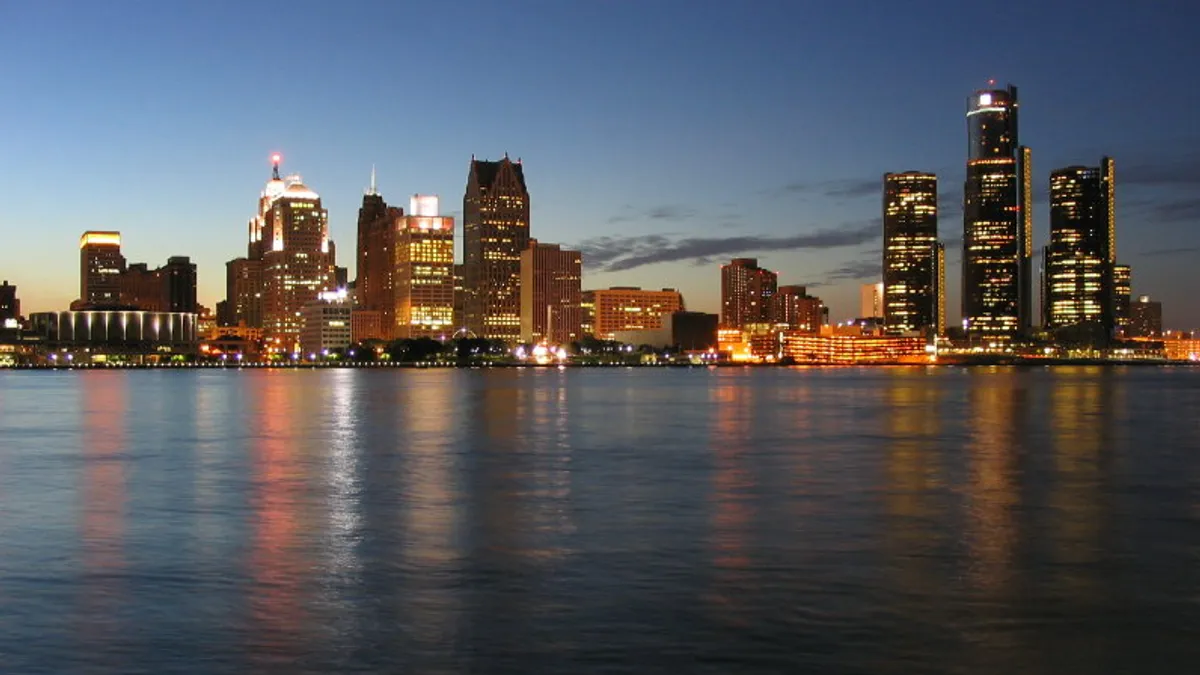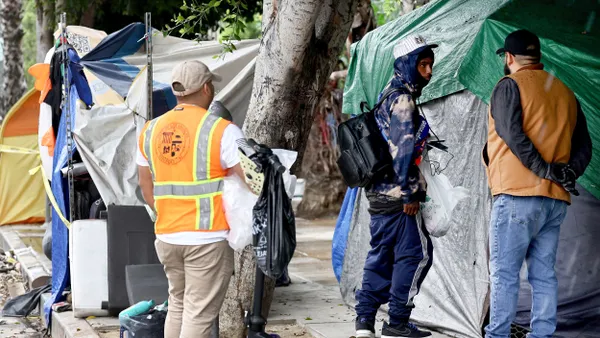Dive Brief:
- The city of Detroit is suing the manufacturer behind nearly a third of the city’s LED streetlights, charging that tens of thousands of the lights are at risk of prematurely burning out, according to a report in The Detroit News. The lights were installed in December 2016 and expected to last a decade.
- The lawsuit against Leotek Electronics USA says the city’s Public Lighting Authority "expects a system-wide failure of Leotek's luminaires in the short-term," which the city says could put its revitalization efforts at risk. A routine inspection found that some lighting units were burned or cracked.
- The Detroit News reports that Leotek had said in a December letter that excessive heat was causing the problem. The company had promised to correct it, but reportedly has not been responsive to the city in recent weeks.
Dive Insight:
A three-year, $185 million streetlight overhaul that wrapped up in 2016 was touted by Mayor Mike Duggan as part of the city’s resurgence. Prior to the installations, some 40% of the city’s streetlights didn’t work, according to the Detroit News, but the overhaul made Detroit the first U.S. city to adopt 100% LED streetlights. The upgrades weren’t just meant as a repair measure, but the bulbs are more cost-effective and energy efficient (other cities, including Chicago and San Francisco, have made LED streetlights a key part of their energy plans).
Leotek had promised a 10-year warranty as part of the $3.9 million contract to install more than 25,000 LED lights (the city reached out to four contractors for the installation). Berkeley, CA has reported similar problems with Leotek lights. Duggan told The Detroit News that it could cost up to $9 million to make the repairs, but the city hopes to finish up by November. "We find a problem, we face up to it and we solve it, and that’s what we’re doing," Duggan said.
Despite the energy benefits, other LED installations have been the subject of controversy, in large part because some residents think they’re too bright.
The incident shows that it can be difficult for cities partnering with private companies for major smart cities upgrades, since they can be left with costly repairs and frustrated residents when things go wrong. Recently, a partnership between Google Fiber and the city of Louisville, KY to provide high-speed broadband fell apart over a botched installation method. The departure angered the city, which had hoped the broadband service would help address the city’s digital divide, and left Google with a $3.8 million bill to cover infrastructure repair costs.











